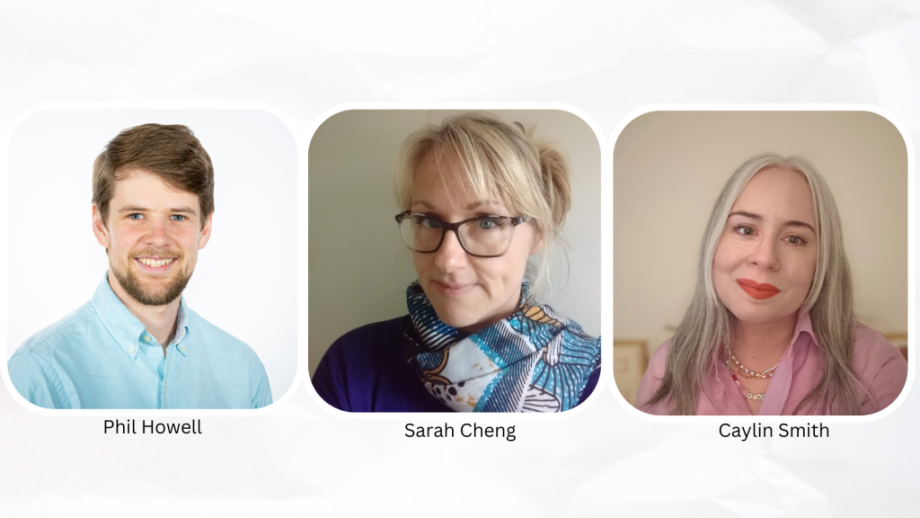The Centre for Computing History is delighted to announce the appointment of three new Trustees to the Board.
They are:
Sarah Cheng, Greater Cambridge Shared Planning Service
Phil Howell, Raspberry Pi Foundation
Caylin Smith, Cambridge University Libraries
They join a 6-strong board, which governs the Centre and helps determine our future direction. The new trustees were selected following a competitive application and interview process.
Gareth Marlow, Chair of The Centre for Computing History, said: “I’m delighted to welcome three more talented people to our board. Each of our new trustees brings with them skills that help us move forward with renewed purpose and direction. I know their expertise and commitment to making the museum inclusive, open and welcoming to all will be hugely valued as we progress with the museum's development. We look forward to working together.”
The announcement follows the appointment of two more trustees earlier this year who are long-standing volunteers whose support and expertise have already added considerable strength to the Board.
In the Centre's 10th year of operations in Cambridge, these appointments mark renewed vigour in the Centre's strategic growth as a museum and visitor attraction in the city.
Biographies
Sarah Cheng
Sarah has had a variety of roles in the heritage sector, initially as a conservation technician at the University of Lincoln and then, using the practical skills and experience she gained in the conservation of decorative surfaces, teaching on their undergraduate and masters courses as an Associate Lecturer. After completing an MSc in the Conservation of the Historic Environment at the University of Reading, Sarah worked as a Project Support Officer on two National Heritage Lottery Funded projects in Nottinghamshire before moving south. Sarah currently works as a Senior Conservation Officer for Greater Cambridge Shared Planning Service covering the city of Cambridge and South Cambridgeshire. She is excited by the power that objects have, in any form, to tell a story and the potential this has to connect people and bring greater understanding.
Phil Howell
Phil is a senior software engineering and product leader with over two decades' experience building digital products. He is currently Chief Technology and Product officer at the Raspberry Pi Foundation where he leads a cross-disciplinary team to build online learning experiences for young people and educators. He previously held roles at Arm with a focus on developing online tools for embedded engineers, Molo Finance where he lead delivery of the first fully automated online mortgage journey in the UK, and a number of early-stage start-ups where he built products and engineering teams from inception through to seed round and Series A funding.
Caylin Smith
Caylin is Head of Digital Preservation for Cambridge University Libraries, where she set up the Digital Preservation team and leads an ambitious programme to develop and support collection management services for digital materials. Caylin is also a member of the Peer Review College of the Arts and Humanities Research Council, and was recently a co-investigator on the Wellcome Trust funded Archive of Tomorrow project that captured health-related information published online for the UK Web Archive and investigated how to make this collection accessible to researchers.
Prior to joining the University of Cambridge, Caylin was based at the British Library, where she was the Repository Manager for the Library's digital collection materials and later Senior Project Manager for the UK Legal Deposit Libraries.
Caylin has a wealth of experience in digital collection management in libraries, archives, and museums in the United Kingdom, the United States, the Netherlands, and Canada.
She holds an MA in Heritage Studies from the University of Amsterdam and a BA (Hons.) in English (Cultural Studies) from McGill University.
For more information about the Board of the Centre for Computing History, please see our People page and visit our About Us page to find out more about the the museum and its history.


